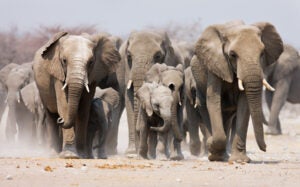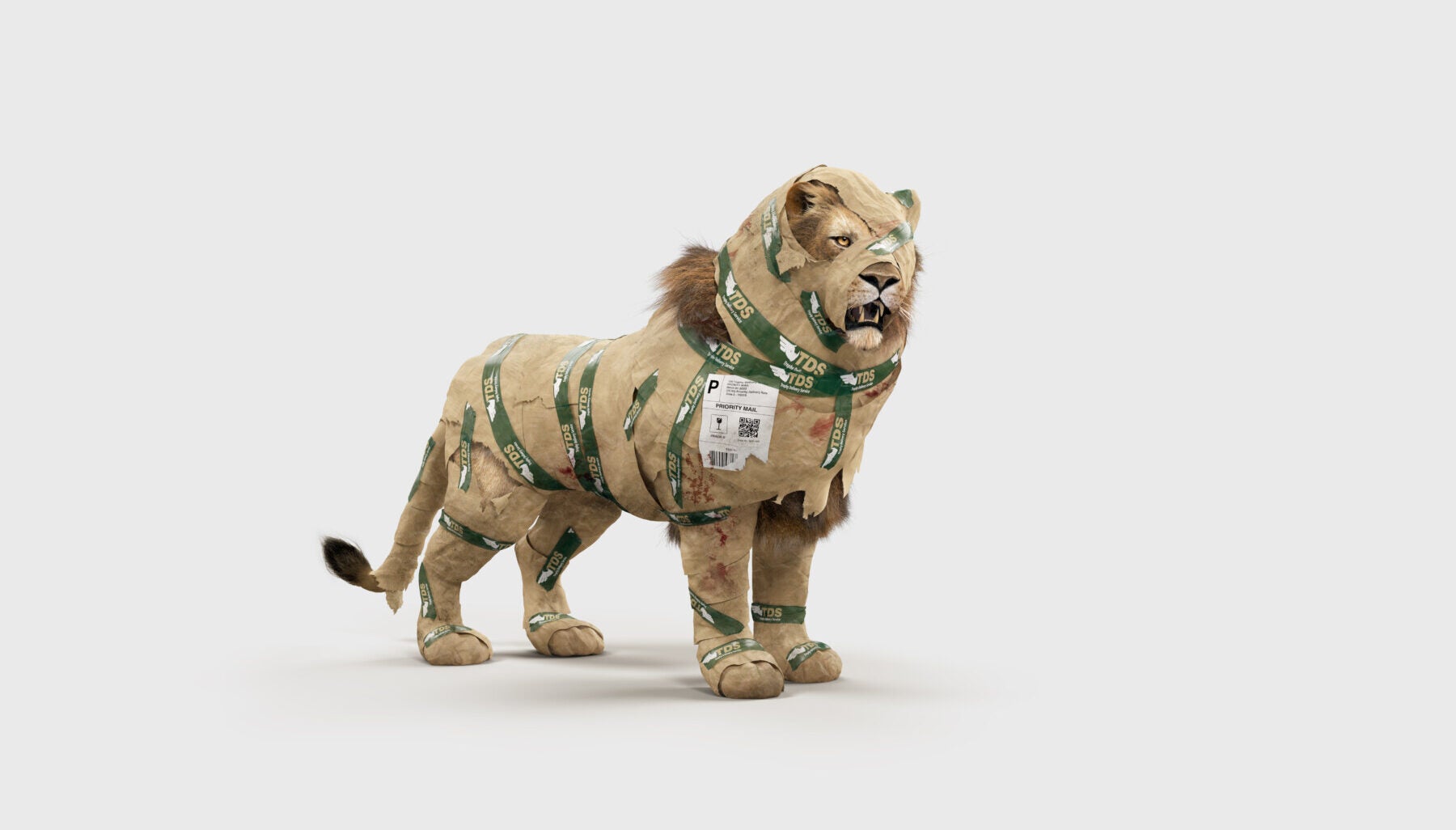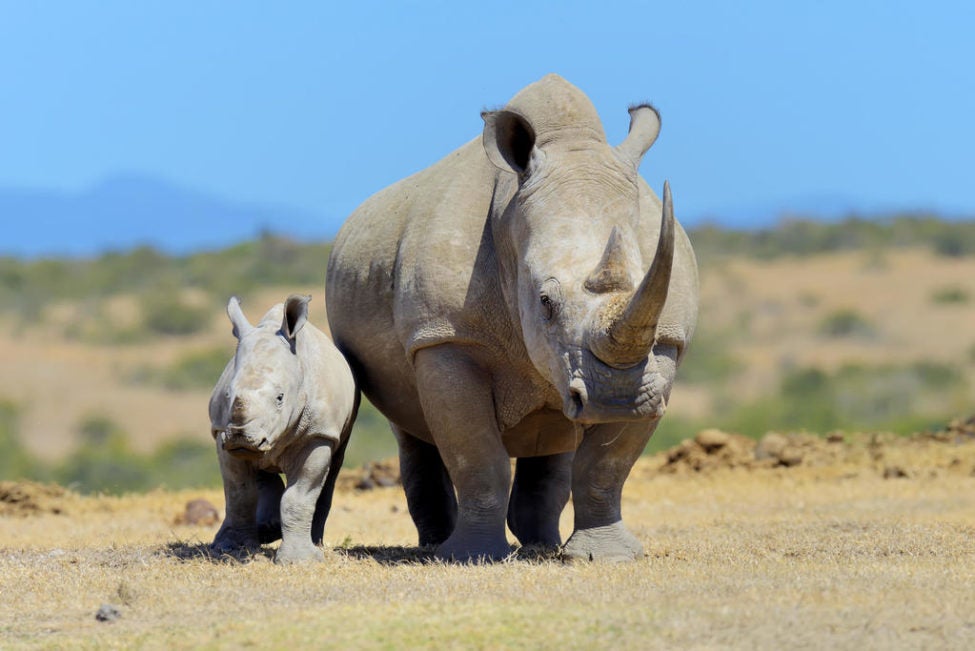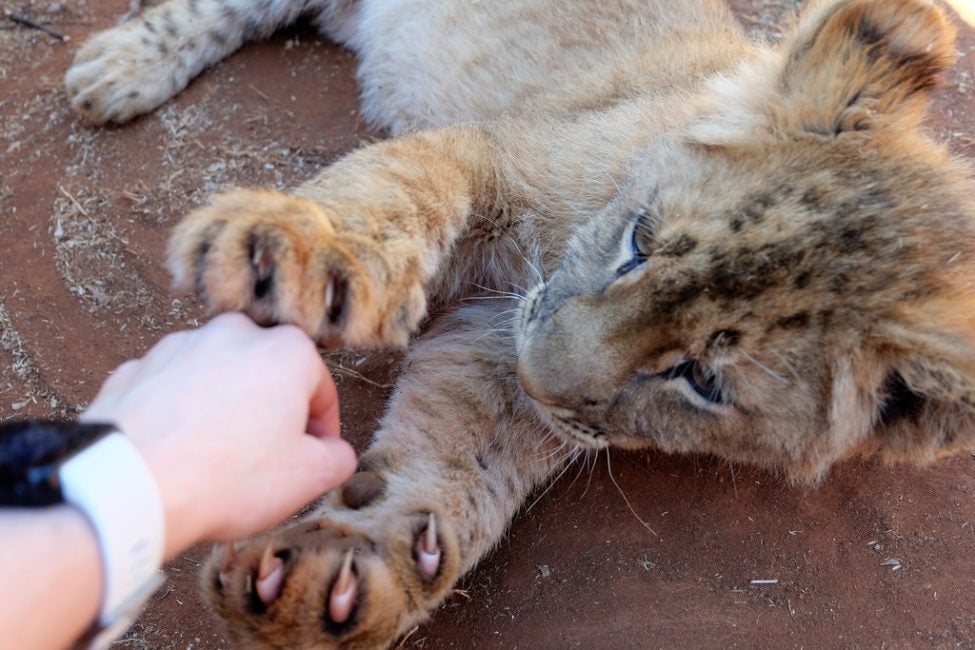
LONDON—A group of 103 wildlife conservation experts, scientists, government officials and community leaders who live or work in countries throughout Africa—including Botswana, Tanzania, South Africa, Nigeria, Democratic Republic of Congo and Zimbabwe—have sent an open letter to Members of the House of Lords urging them to support a bill to ban the import of hunting trophies to the UK ahead of a Parliamentary debate on the issue on June 16th.
The signatories, who include Lt Gen Dr Seretse Khama Ian Khama, former President of Botswana; Farai Maguwu, director of Centre for Natural Resource Governance, Zimbabwe; and David Kabambo, co-founder & executive officer, Peace for Conservation, Tanzania, directly challenge the “grossly over-simplified and unsubstantiated” pro-trophy hunting narrative promulgated by a small number of UK-based academics, and condemn the “Western-conceived, profit-driven trophy hunting industry that perpetuates colonial power dynamics”. The letter comes ahead of the June 16th House of Lords’ 2nd reading of the Hunting Trophies (Import Prohibition) Bill and is being shared exclusively by animal protection organization Humane Society International/UK, which campaigns to end trophy hunting.
The African experts, who also include Bantu Lukambo, director general, Innovation for the Development and Protection of the Environment in the Democratic Republic of Congo; Timothy Kamuzu Phiri, executive director of Mizu Eco-Care in Zambia; and Boniface Mpario, Maasai elder, Kenya; alert Peers to the fact that the trophy hunting industry “has displaced local people, obstructed opportunities for community land ownership and management of natural resources based on indigenous knowledge and facilitated corruption.” They urge Peers to reject trophy hunting activities as “colonial relics” and end the UK’s involvement in the “selfish, destructive and myopic business of trophy hunting.”
The letter is signed by a number of community representatives from Tanzania, where the government has forcibly evicted thousands of Maasai to make way in part for trophy hunting. Signatories state: “We are people who live and work in Africa; we are scientists, industry representatives, conservationists, academics, sustainable development experts, economists and wildlife stakeholders. We experience the trail of greed and destruction left by trophy hunters both personally and through the work we do every day. We recognize both the immediate and long-term damages that the industry and its apologists ignore. This Bill stands in solidarity with the views of millions of Africans who believe trophy hunting to be a morally reprehensible and insulting waste of our remarkable nature, and who believe that conservation can never be achieved down the barrel of a gun.”
The letter continues: “We are well aware that a small number of UK-based academics have been extremely outspoken in the UK media in their defense of trophy hunting in Africa and their associated opposition to this Bill. Although they purport to speak for Africa, they present grossly over-simplified and unsubstantiated arguments, and it is critical for Honourable Members of the House of Lords to acknowledge that they do not represent the views or experience of many scientists and community members living and working throughout the African continent. […] We wholly refute the claim that trophy hunting is a “necessary evil,” as promulgated by certain conservation scientists, many of whom have proven funding ties to the trophy hunting industry. […] We also reject the fallacious proposition that banning trade in hunting trophies is neocolonialist or racist. The irony of this claim is that it is in fact the Western-conceived, profit-driven trophy hunting industry that perpetuates colonial power dynamics and continues to drive social and economic inequalities every day across many communities.”
Noma Dube, founder of Zimbabwe Elephant Foundation, said: “Trophy hunting creates major equity challenges for African rural communities. Every year trophy hunters deposit vast sums of money into foreign bank accounts of hunting companies in order to kill the biggest, rarest animals. That money never returns to African communities, and only a fraction of the amount paid for licence fees and permits is ever received by the communities whose land was set aside to create hunting concessions on the boundaries of National Parks. In the case of elephants, when trophy hunters kill the biggest and often older animals, this typically leaves social groups destabilised which can significantly increase the likelihood of animals coming into conflict with nearby communities. It is insulting to suggest that trophy hunting is in any way good for conservation or African communities.”
Timothy Kamuzu Phiri, executive director of Mizu Eco-Care in Zambia, said: “Nothing bothers me more than the use of African ‘representatives’ to defend the supposed ‘benefits’ of trophy hunting. The true victims of the perils of trophy hunting as an unethical ‘conservation tool’ remain voiceless in rural African communities. Sadly, the local African communities are not the true beneficiaries of trophy hunting. The actual beneficiaries are the hunters and business operators, and hunting businesses which are largely in private hands and so-called, self-proclaimed ‘defenders of African conservation’, who in most cases are not based in Africa. These individuals wear the label of conservation experts or academics and weaponize pre-determined studies they call ‘science or evidence based’ against indigenous knowledge systems.”
Claire Bass, senior director of campaigns and public affairs at Humane Society International/UK, said: “Government officials, scientists, conservationists and community leaders from across the African continent have a clear message for the House of Lords: trophy hunters are robbing African countries of their most irreplaceable wildlife. Motivated by self-interest, those defending the practice are selling a lie, wilfully overlooking the corruption and mismanagement that underpins the industry, and the damage it causes. We urge Members of the House of Lords to put an end to this cruel colonial hangover, and protect threatened species by passing the Bill into law.”
The open letter and full list of signatories can be viewed here.
ENDS
Media contact : Wendy Higgins, director of international media, Humane Society International
whiggins@hsi.org
Notes
- A YouGov poll carried out in December 2021 found that 82% of the British public think importing animal body parts as hunting trophies should be made illegal.
- The Bill, which passed its Report Stage and Third Reading in the House of Commons on 17th March 2023, would prohibit the import into the UK of hunting trophies of animal species listed with the highest level of protection in Annex A or B of the Control of Trade in Endangered Species Regulations (2018).
- In recent years, UK trophy hunters have imported trophies from some of the world’s rarest species, including polar bears, rhinos, African elephants and leopards.
- Since trophy hunting rose to prominence in the colonial era, there have been catastrophic declines in populations of some of the world’s most iconic species – including elephants, lions, rhinos and giraffes – many of which are under increasing pressure from loss of habitat, climate breakdown, poaching and the illegal wildlife trade.






